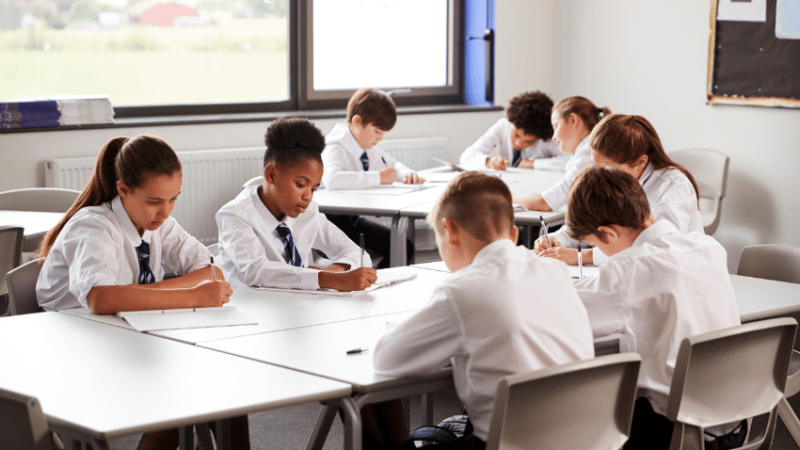Education policy – How it started, and how it’s going…

We were promised radical reforms to support social mobility; a deeply dysfunctional education system is what we got, says Melissa Benn…

- by Melissa Benn

The ongoing crisis in recruitment and retention. Reforms to initial teacher education. Teachers’ pay. The impacts of industrial action.
These are the urgent themes of early 2023. Recently, however, I’ve been thinking about the bigger picture. What kind of citizen does our school system seek to create? Who, or what, is judged a ‘success’ at the end of it? And are these official markers the right ones?
What’s become clear is that the current education system promotes one particular model of success – impressive academic attainment, followed by entry to a highly selective university.
I remember a fellow parent once telling me about their visit to a potential local primary school. The film shown at their welcome meeting began and ended with a picture of the dreaming spires at an ancient university, almost certainly Oxford or Cambridge. ‘This,’ these parents to a group of diverse 3- and 4-year-olds were told, ‘is what it’s all about, what it’s all for.’
Really? Seen in this way, our system operates like a funnel, or the kind of piping bag you’d use to ice a cake. Millions of children are deposited at the beginning of their school years, and slowly narrowed down to those few thousands who reach the hallowed halls of a few select institutions.
‘Soft bigotry’
Back in 2010, Michael Gove lambasted the outgoing New Labour government for the tiny number of children receiving free school meals who had gained entry to Oxford and Cambridge during its time in office – on average, 45 a year.
For Gove, this was clearly the major marker of educational inequality. In many ways, the draconian reforms that followed – everything from school structures to the curriculum, Ofsted and increasingly harder exams – was designed to raise this number.
Said reforms were largely modelled on the values and priorities of private or selective schools (not surprising, given the educational background of many leading Conservatives) but without their favoured intakes and superior resources.
At the same time, the Coalition and subsequent Tory governments demonstrated little understanding of the vital place that so many schools have within their local communities, nor indeed the complex relationship between poverty and educational achievement. Any suggestion that poverty might have something to do with educational failure was often dismissed by government representatives and supporters as ‘the soft bigotry of low expectations’.
Collateral damage
The entire system was overhauled, but for what? From 2019 to 2022, 123 got into Cambridge and 124 into Oxford. Over the same period, Eton and Westminster (schools which both charge fees of nearly £45,000 per year) sent 187 and 227 respectively.
This has always been too narrow a metric for success, in any case. Katherine Birbalsingh – until recently, chair of the Social Mobility Commission – seems to agree, having argued that this concentration on success at top universities has failed to celebrate “Those taking small steps up, like those whose parents were unemployed (but) who now have a job.”
The collateral damage of the last decade has been huge, particularly with regards to what the Association of School and College Leaders describes as the ‘forgotten third’ – those millions of children who don’t reach expected minimum standards at 16 and are designated failures.
Top-down system
We’ve also seen arts subjects progressively cut, and the curriculum too often reduced to ‘bite-sized’ lessons fed to exhausted teachers – now cogs in a top-down system that shows little respect for the autonomy of either teachers or learners.
School leaders are therefore increasingly calling for a halt to the ‘exam factory’ mentality, and rightly arguing that more attention needs to be paid to children’s wellbeing and the development of their characters in the round.
I’d also add that there’s a pressing need to cement links between schools and local communities, each of which can offer the other vital resources and support.
It’s time for us to celebrate and support what’s unique about state education, rather that force it into imitating the often defective values and practices of institutions that have only ever served a tiny minority.
Melissa Benn (@Melissa_Benn) is a writer and campaigner, and visiting professor of education at York St John University










